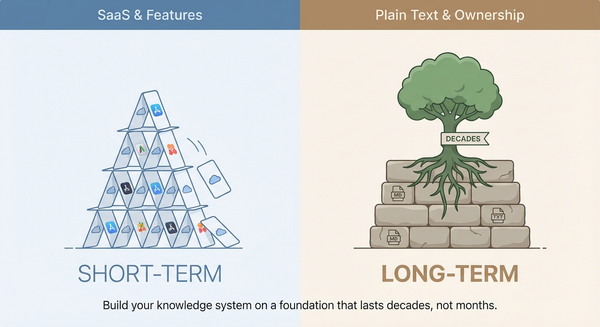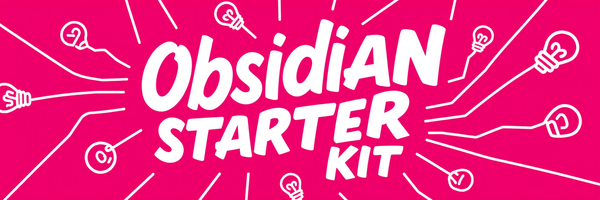Everyone Told Me This Reading Method Was Wrong. Now I Read 3X More Books and Never Get Bored
Discover why reading multiple books in parallel isn't cheating. It's the "secret" to deeper understanding, better retention, and falling in love with reading again.

Discover why reading multiple books in parallel isn't cheating. It's the "secret" to deeper understanding, better retention, and falling in love with reading again.
Introduction
In this article, I want to convince you that reading multiple books in parallel is not just OK. It's actually a better approach for both fiction and non-fiction.
I currently have about almost 15 books in progress. Fiction, non-fiction, brain science, history, sci-fi adventures, creativity guides, etc. And I LOVE Interleaving books.

Many people think you should finish one book before starting another. It's like saying you should finish one TV series before starting another, or complete one project before having any other ideas. Life doesn't work that way, and neither should your reading.
I've written before about interleaving books, but I didn't dive deep into the why and the benefits one can get with that approach. Let's fix that!
The Problem with Sequential Reading
When you force yourself to read one book at a time, you're setting yourself up for "failure". How many times have you abandoned reading for weeks because the book you were "supposed to finish" felt boring? I used to do this all the time. I'd hit a slow chapter, thought I had to push through, forced myself a bit, then just give up entirely. No reading for days or even weeks. All because I thought that starting another book was somehow "cheating".
This is ridiculous when you think about it. We don't apply this logic to anything else in life. You don't eat only one type of food until it's gone. You don't listen to one album on repeat until you're "done" with it. You don't watch one TV series exclusively until you've seen every episode. So why do we torture ourselves with books?
The Joy of Following Your Curiosity
Reading multiple books in parallel is mostly about freedom, following your gut, your curiosity, and enjoying the time you spend reading a lot more.
Sometimes I want to jump into a starship and save the galaxy. Sometimes I feel melancholic and need a calm, reflective story. Sometimes I crave thrills and reach for Stephen King. Why should I deny myself what I actually want to read just because I started something else last week?
Reading books is like cooking a great meal. If you want everything to come together perfectly, you have to prepare multiple things in parallel. Otherwise, some dishes will be served cold or too late.
Timing is everything
When you read this way, you're always excited about reading. There's always something in your stack that matches your current mood, energy level, or interests. Reading becomes pure joy instead of a chore.
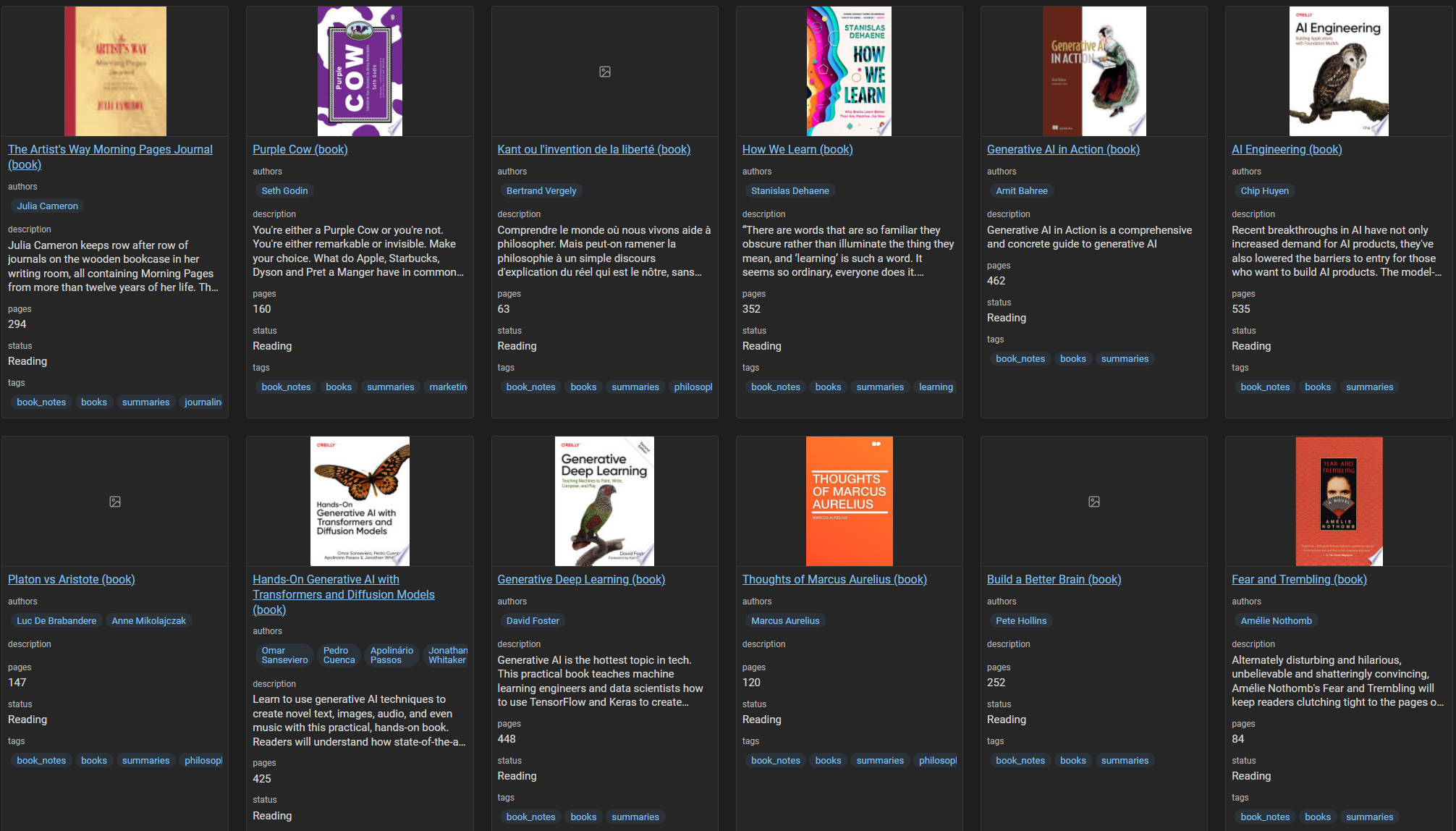
Mental Contexts vs Non-fiction Books
When reading non-fiction books over multiple weeks (or even months), your mental context evolves a lot, and that's actually really valuable to get more out of what you read. If you read a personal development book in one day, you're processing all those ideas with essentially the same mindset, the same problems in mind, the same mental state. But when you read that same book over several weeks or longer, you return to the book with fresh experiences, fresh ideas, different challenges, etc. It completely changes the way in which you interpret the content. And it's really valuable. This enables approaching the same ideas from different angles, and making connections you wouldn't have made otherwise.
Moreover, this enables deeper reflection, because you give your brain more time to chew on the ideas you've read about. Your brain works on those in the background, combining them with whatever else you have in mind or experience.
IMHO, this is especially powerful when combined with a knowledge management system. As I've explained in my article about Why you should take notes while reading non-fiction books, our brains are unreliable, and we forget most of what we read. But when you read over extended periods AND take (smart) notes, you create multiple touchpoints with the material from different mental states.
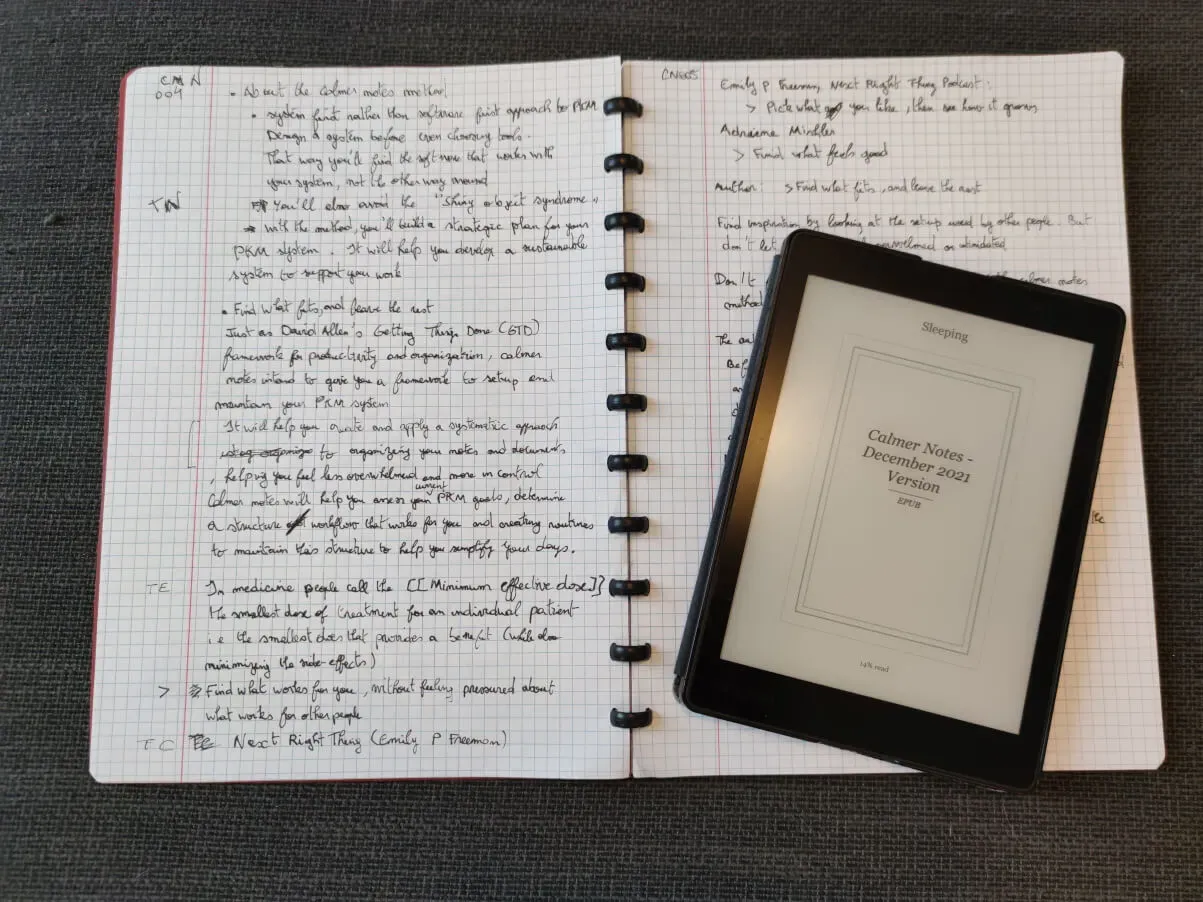
Cross-Pollination of Ideas
The coolest benefit of reading multiple books (especially non-fiction book) in parallel is that you get the opportunity to draw parallels, and combine ideas from different sources. This leads to interesting learning opportunities, and more creativity. Whether those books discuss the same topic from different angles (or simply through the eyes of different authors), or discuss different topics, you get to think about the differences, the similarities, the intersections, how ideas from one relate to the other, etc. These connections would probably not happen if you read those months apart.
When you combine this with smart note-taking techniques, you can capture these ideas forever. My goal when taking book notes is not only to capture verbatim sentences and quotes, but to capture the connections, the insights, the "aha" moments that come from exploring multiple perspectives simultaneously.
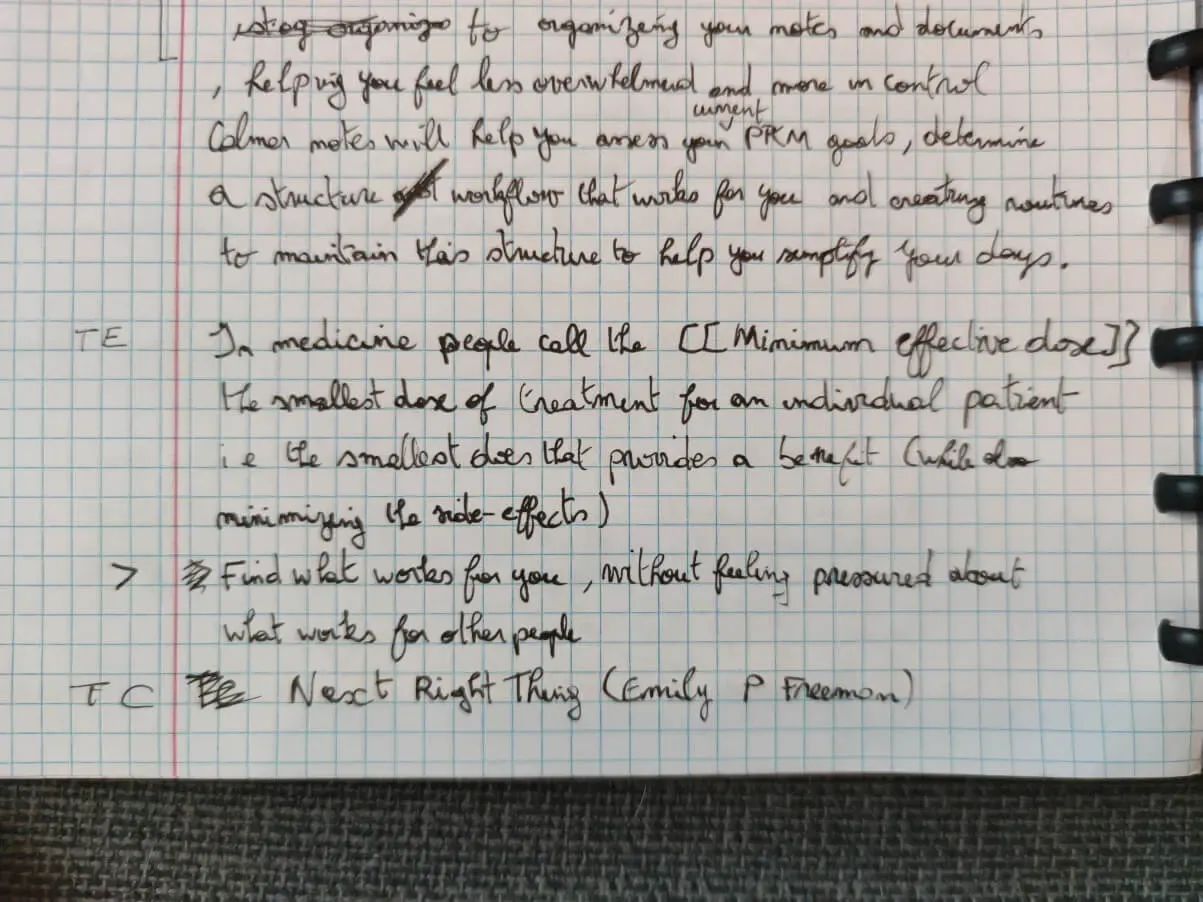
The Refreshing Effect of Returning
There's something really satisfying about returning to a book after a brief pause. When you come back, you have a different mental state, a different mindset, a different energy level, new experiences, fresh ideas or new knowledge. This completely changes the way in which you "consume" the content.
It's like meeting an old friend after some time apart. The conversation is richer because you have new stories to share.
Practical Considerations
"But won't I forget what's happening in my fiction books?"
Sure, if you abandon a novel for more than 1-2 weeks, you might lose track of many details. My recommendation is to try and come back to each book at least once a week, to keep the information in your brain. But do consider that you don't have to read 50 pages at a time. Even just a few pages here and there are enough to keep the story alive in your mind. The key is maintaining some continuity.
"What about complex non-fiction books?"
For non-fiction, I use my Personal Knowledge Management (PKM) to capture everything that matters. I create a single note per book, with summaries, key ideas, and personal reflections. By the time I finish a non-fiction book, I'm confident I'll "never" need to open it again. The knowledge I care about has been integrated into my system, where I can find it all back easily.
"How do you decide which book to pick up?"
Mostly, pure intuition. I follow what feels right in the moment, and I let my curiosity guide my choices. Sometimes it's based on my energy level. Sometimes it's based on what I'm working on. Sometimes it's just what sparks joy or excitement.
"Is there a limit to the number of books one can read in parallel?"
Who knows? Maybe. Maybe not. I consider that there are diminishing returns in adding more books to the "in progress" pile. That's why I try remain below 20 books. Above that, it just takes me too long to finish anything, simply because my curiosity keeps drawing me to open new ones.
The Permission to Not Finish
The first step consists in giving yourself permission to not finish whatever book you've started reading. If a book keeps failing to draw you back, it's all right. It may not be the right book for you. Or it may just not be the right time to explore that one.
Open a new one. Start exploring. And don't feel bad about the previous one. There are no rules.
Read More and More
Since adopting this approach a few years back, I've read significantly more books per year. Not because I'm speed reading (I'm actually against that) or forcing myself, but because I've eliminated the friction that used to stop me from reading entirely.
When I was reading a single book at a time, I used to abandon reading for entire weeks, because the book felt boring and I didn't want to "cheat" by starting another. Now there's more consistency in my reading practice. I read almost every single day. Sometimes dozens of pages. Sometimes, just a paragraph or two. It doesn't matter. But I almost always enjoy the time I spend reading.
The quality of my reading has improved a lot as well. I retain more, and make more connections. Of course, that's also related to the maturity level of my knowledge management system...
Conclusion
Reading multiple books in parallel isn't about being unfocused or uncommitted. Rather, it's about giving yourself more freedom, respecting your mood, your energy, and following your curiosity. Focus on maximizing enjoyment, rather than trying to respect some imaginary rule. There are no rules. Read whatever you feel like reading. And if you want to start reading something else before you are done with one book, then why the hell not? Just go ahead, open that book. And if it happens again tomorrow, then open one more book. The other ones will still be around, that's fine. And if you never come back to a book, then give it away. It might be the right time for someone else to read it.
Stop forcing yourself to finish books you're not enjoying right now. Approach reading like videogames. Read whatever feels right in the moment. And you'll enjoy reading a whole lot more.
Going Further
If you want to maximize the value you get from reading non-fiction books, consider building your own Knowledge Management system. In my Knowledge Management for Beginners course, I teach how to build a system that captures and connects all your insights, ensuring you never lose one again.
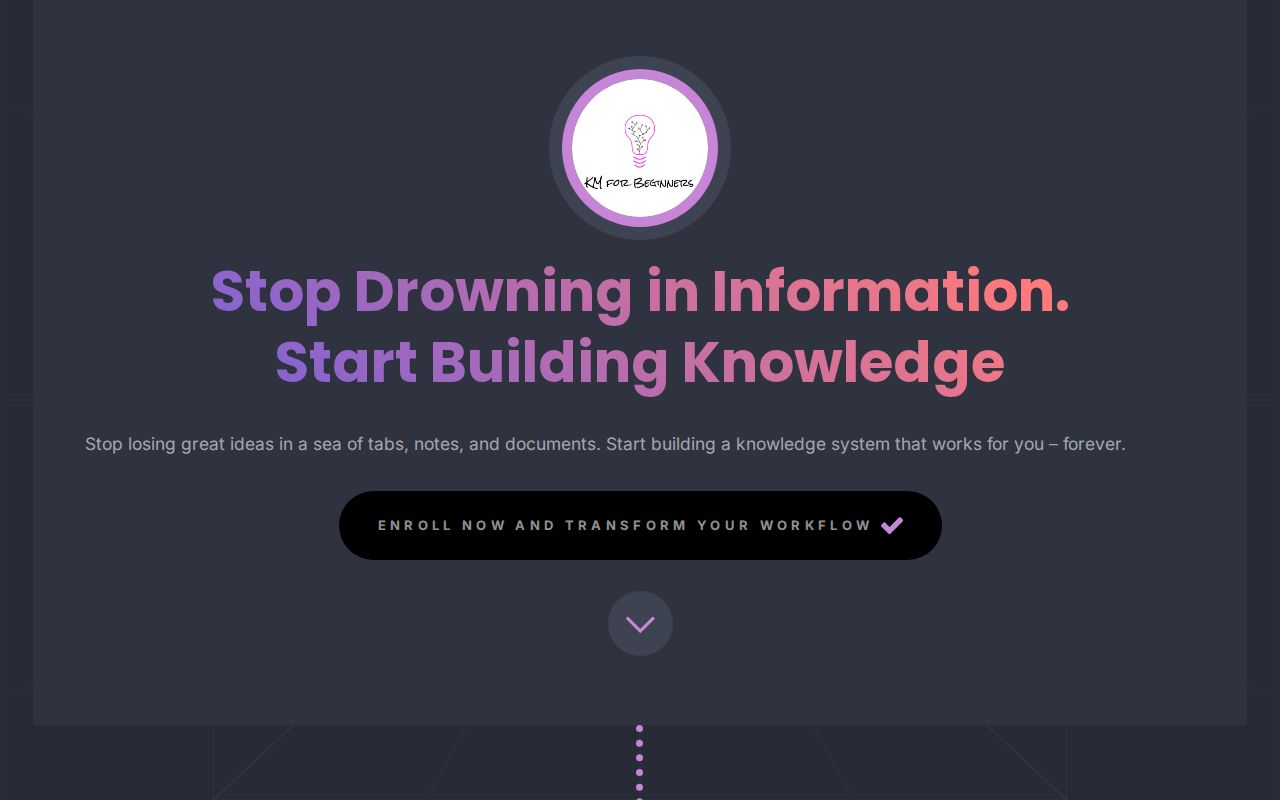
And if you're ready to transform your entire approach to learning and knowledge work, join us in the Knowii Community, where we explore the frontiers of modern Knowledge Work.
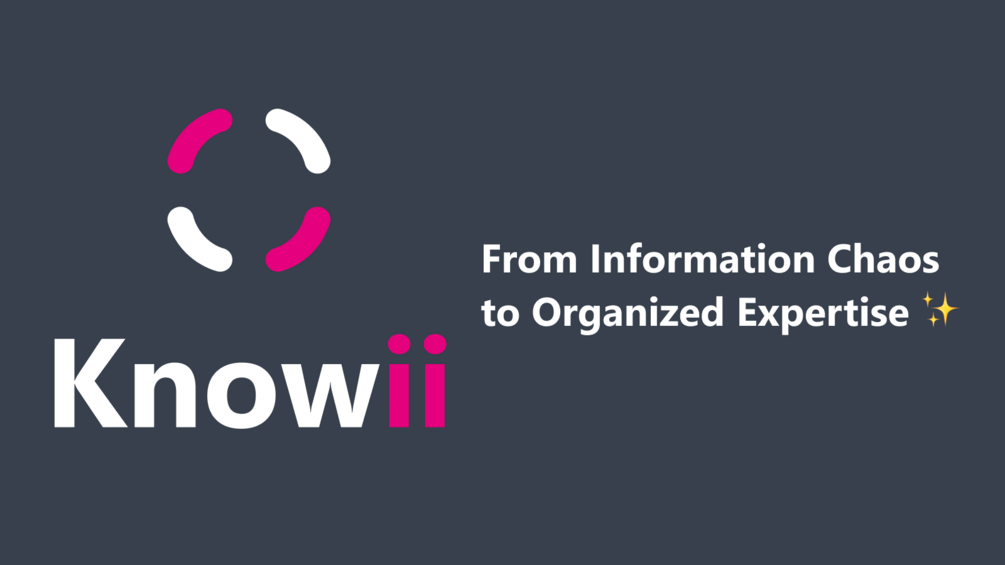
That's it for today! ✨
About Sébastien
I'm Sébastien Dubois, and I'm on a mission to help knowledge workers escape information overload. After 20+ years in IT and seeing too many brilliant minds drowning in digital chaos, I've decided to help people build systems that actually work. Through the Knowii Community, my courses, products & services and my Website, I share practical and battle-tested systems. You can follow me on X 🐦 and on BlueSky 🦋.
I am an author, founder, and coach. I write books and articles about Knowledge Work, Personal Knowledge Management, Note-taking, Lifelong Learning, Personal Organization, and Zen Productivity. I also craft lovely digital products.
If you want to follow my work, then become a member and join our community.
Ready to get to the next level?
If you're tired of information overwhelm and ready to build a reliable knowledge system:
- 🎯 Join Knowii and get access to my complete knowledge transformation system
- 📚 Take the Course and Master Knowledge Management
- 🚀 Start with a Rock-solid System: the Obsidian Starter Kit
- 🦉 Get Personal Coaching: Work with me 1-on-1
- 🛒 Check out my other products and services. These will give you a rock-solid starting point for your note-taking and Knowledge Management efforts







